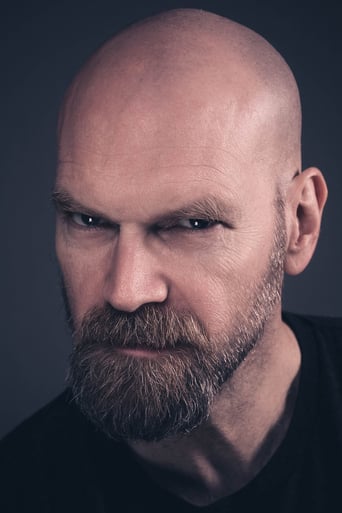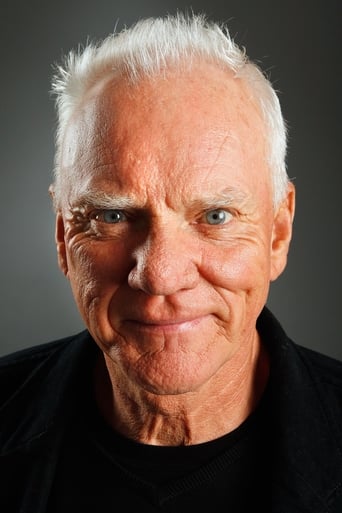jeff-theis4
Despite all the criticisms that have been hurled at him over the course of his filmmaking career, Rob Zombie never fails to present an entirely unique vision with a definitive style, even when remaking one of the most beloved horror classics of the modern era. Remaking such a revered film is always going to be a risky task, and Zombie's retelling of John Carpenter's original has been polarizing to say the least. It has been decried by fans for failing to live up to the original's spirit, and of demystifying one of cinema's most iconic boogeymen, Michael Myers. It's obscene and violent, whereas the original is restrained and understated, and explicitly deals with Myers' psychology, which the original decidedly kept vague, save for the occasional "pure evil" speech by Donald Pleasance. Indeed, this remake differs so heavily from the original that it becomes something entirely different, which some will use as a criticism, but I can't help but commend. In an age of cynical cash-grabs, the Halloween sequels being perfect examples, this re-imagining opts to use the Halloween mythos as the means to tell an entirely different story, and to convey an entirely different experience. As a "Halloween" film, it can be seen as a disappointment, but if viewed on its own terms, it's a deeply unsettling and emotionally provocative tale of a twisted family reunion.The most substantial criticism of the film is that, by exploring Michael Myers' psychology and by humanizing him, it removes what made him so effectively scary in the first place, as the audience now has the opportunity to gain a sense of familiarity with him. However, that's presuming the intent of the John Carpenter's original onto this film, which set out to accomplish something entirely different. Rob Zombie has no interest in keeping Michael Myers in the background, but instead, makes him the central focus in order to trace his psychological evolution from demented child to enraged psychopath. This Myers isn't so much a personification of evil as he is a manifestation of rage whose humanity is stripped away over the course of the film. The original reinterpreted the boogeyman in a suburban setting, but this re-imagining takes you into the boogeyman's world, and forces the audience to experience his life through his eyes. Perhaps not the most effective slasher fodder, but personally, I found Michael's continual descent into madness to be disturbing, provocative, and even, perhaps, a little sad. Taken on its own terms, the film is a chilling portrait of a deranged mind, and the impact he has on those around him. Despite accusations to the contrary, the film deals with the theme of violence more than it exploits it, and the explicit gore is used to convey the uncompromising brutality of the carnage which Michael leaves in his wake. The foul language and vile characters desensitize the audience just as it does Myers, and while I could admittedly have done without the white-trash element, it feels more like a component to the story than a simple cliché.This is all, of course, without mentioning of the technical aspects of the film, which I find superb across the board. Say what you will about Rob Zombie's ear for dialogue, but visually, this film boasts a haunting atmosphere, and proves that Rob Zombie has speaks the language of cinema fluently. The performances are all convincing and engaging, especially from Taylor-Compton and McDowell. Taylor-Compton's Laurie has been criticized as being a stark deviation from Jamie Lee Curtis' portrayal, but her performance, save for an admittedly terrible introduction, is appropriate for Zombie's vision. Her bubbly charm and happy-go-lucky attitude both serve to make her an endearing character, especially in her babysitting scenes, and to also provide to juxtapose her with the brooding and enraged Michael Myers, played to perfection by Tyler Mane.McDowell has likewise been criticized for not living up to Donald Pleasance's intensity, despite the fact that this, again, is an entirely different take on the character. McDowell plays a more conflicted version of the character, who regards Michael as a danger to society, but also as something of a kindred spirit, even something as a friend, which is as perverse as it is fascinating. McDowell instills the role with sincerity and compassion, and creates a sympathetic character out of the good doctor, especially in the asylum scenes where he desperately tries and fails to help his troubled patient regain his humanity.Of course, fans of the original will take issues with the liberties Zombie took with the material no matter what, which is perfectly within their rights. Film is a subjective experience, and your perspective on a film will depend, in large part, on personal taste and preference. That said, if one is to judge this film, they should do so on its own terms, as they should with any film, because one is to do so here, they could find the merit of the film that I found. Some fans might even be enraged at the very thought of these films, and couldn't believe that someone could enjoy it. They might look at this film and ask, "was that the boogeyman?" In fact, I do believe it was.








